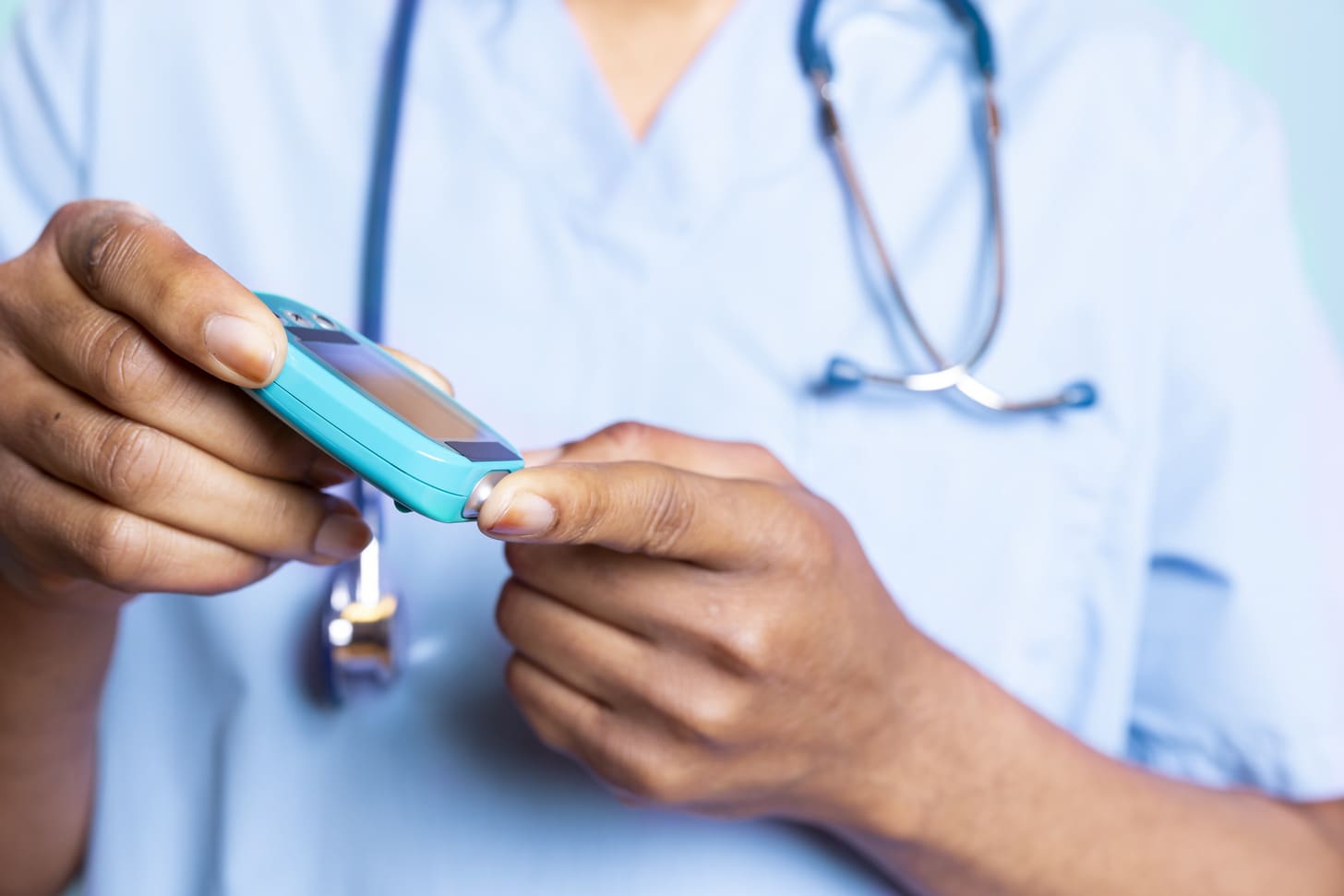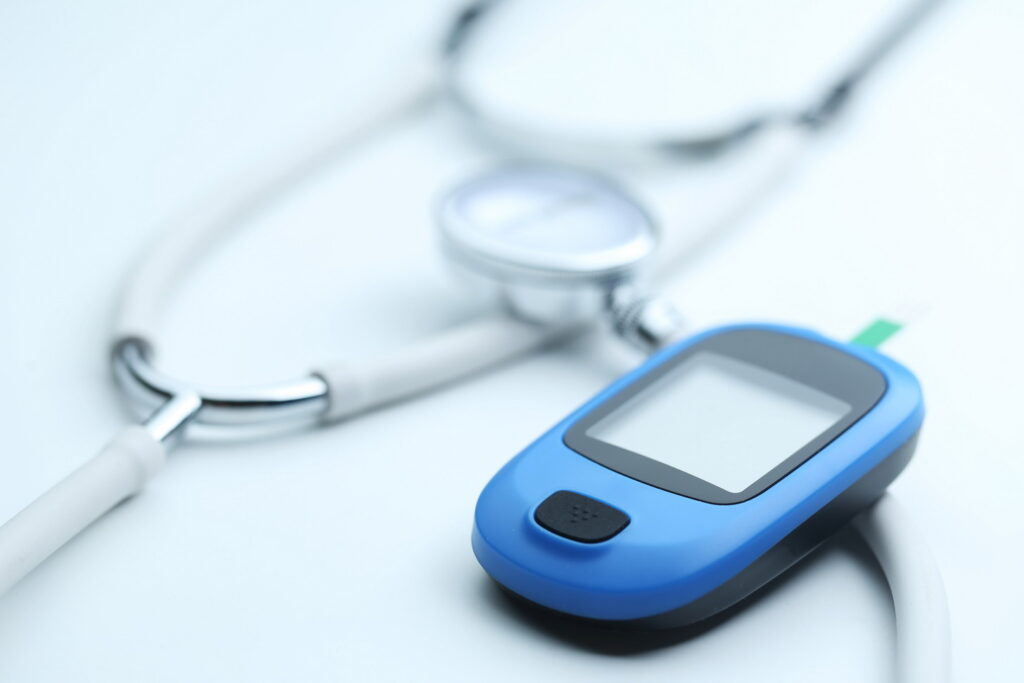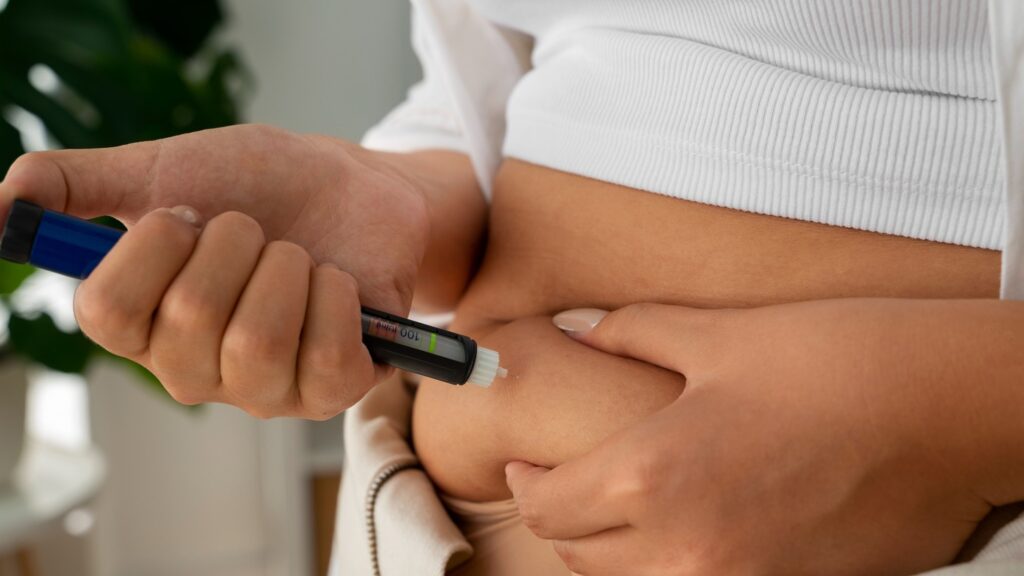Last Updated on October 21, 2025 by mcelik

At Liv Hospital, we know how tough it is to live with type 1 diabetes. Though a cure is not yet widely available, scientists are making big strides. They’re getting closer to finding a solution.
New discoveries like stem cell-derived islet transplantation and advanced immunotherapies are showing great promise. Some people are now able to live without insulin thanks to these advancements. We look into the latest science and how it might change the way we treat type 1 diabetes.

Type 1 diabetes is more than just a lack of insulin. It’s an autoimmune disease with big implications. Knowing this helps us understand the disease’s complexity and the challenges in managing it.
In type 1 diabetes, the immune system attacks and destroys beta cells in the pancreas. These cells make insulin. Without them, people need insulin therapy to live. The exact reasons for this attack are not fully known, but genetics and environment play a part.
Learning about this process is key to finding better treatments. For example, stem cell therapy might help restore insulin production.
Type 1 and type 2 diabetes both cause high blood sugar, but they have different causes. Type 2 is mainly about insulin resistance and the pancreas not making enough insulin. Type 1 is caused by the immune system destroying beta cells, leading to no insulin production.
This difference means treatments for type 2 diabetes won’t work for type 1. It’s important to understand these differences to give the right care and explore new treatments.
Until now, managing type 1 diabetes has mainly involved insulin therapy. This has saved many lives but isn’t a cure. Now, research is looking into new treatments like immunotherapy and regenerative medicine.
These new therapies could manage type 1 diabetes better and maybe even cure it. As research keeps improving, we’re getting closer to treating type 1 diabetes more effectively.

The search for a type 1 diabetes cure is ongoing. Yet, what’s the latest on this front? We see that while we’ve made big strides in treating it, finding a cure is not yet in sight.
Today, treating type 1 diabetes mainly involves insulin therapy and continuous glucose monitoring. Insulin has been key in managing the disease for a long time. Thanks to modern tech, it’s easier for patients to keep their blood sugar in check.
Continuous glucose monitoring systems give patients real-time data. This helps them adjust their insulin doses and lifestyle choices better.
| Treatment Approach | Description | Benefits |
|---|---|---|
| Insulin Therapy | Administration of insulin to regulate blood glucose levels | Essential for survival, allows for glucose regulation |
| Continuous Glucose Monitoring | Real-time monitoring of blood glucose levels | Provides detailed glucose data, helps in making informed decisions |
Even with progress, today’s treatments have their downsides. Insulin therapy, though vital, doesn’t cure the disease and needs constant attention. Continuous glucose monitoring, while helpful, can be expensive and invasive.
This shows we need better, lasting solutions.
Managing type 1 diabetes means keeping blood sugar levels stable to avoid serious issues. But a cure would mean fixing the pancreas itself. While managing is important, it’s not the same as finding a cure.
Grasping this difference is essential for understanding the ongoing quest for a cure.
Many people wonder if Type 1 diabetes can be reversed or outgrown. This question has puzzled both patients and doctors for a long time. It’s important to understand the current view and the myths around this condition.
Type 1 diabetes is seen as a permanent condition by doctors. It happens when the body attacks and destroys the insulin-making cells in the pancreas. This makes it hard for the body to make insulin, so people with Type 1 diabetes need insulin shots for life.
The reason Type 1 diabetes is permanent is because the damage to the insulin-making cells can’t be fixed. Doctors say that once you’re diagnosed, you manage the condition, not cure it.
Some people think you can outgrow Type 1 diabetes. This might come from a “honeymoon phase” after diagnosis, where insulin needs go down. But, this doesn’t mean you’ve outgrown the disease; it’s just a brief time when your body might make a bit more insulin.
It’s important to know that Type 1 diabetes can’t be outgrown. You’ll always need to manage it with insulin and make lifestyle changes.
Medical science doesn’t think Type 1 diabetes can be reversed right now. Doctors are looking into new treatments like immunotherapy and stem cell therapy. They hope these might stop the disease from getting worse or help your body make insulin again.
Even though these new treatments are promising, they’re not available or proven to reverse Type 1 diabetes yet. The main goal is to manage the condition well to keep your quality of life good.
Insulin therapy changed type 1 diabetes from a deadly disease to a manageable one. It has been key in managing the condition.
Insulin therapy has grown a lot over time. We’ve moved from animal insulin to human insulin analogs. Modern insulin formulations offer better control over blood sugar.
Now, we use insulin pumps and pens instead of syringes. These new tools help with more precise dosing and better patient care.
Technology has greatly improved diabetes care. Continuous Glucose Monitoring (CGM) systems give real-time blood sugar data. This helps patients adjust their insulin doses better.
CGM systems work well with insulin pumps. Together, they can automatically adjust insulin, lowering the risk of blood sugar problems.
| Technology | Description | Benefits |
|---|---|---|
| Insulin Pumps | Deliver insulin continuously throughout the day | Improved glucose control, reduced risk of hypoglycemia |
| Continuous Glucose Monitors | Provide real-time glucose readings | Enhanced glucose monitoring, timely interventions |
| Smart Pens | Simplify insulin dosing and tracking | Ease of use, improved adherence to treatment |
Insulin therapy is vital but not a cure for type 1 diabetes. It needs constant adjustments and lifestyle changes. The burden of daily management can affect patients’ lives.
We know insulin therapy is key, but it’s not enough. Research into new treatments, like stem cell transplants and immunotherapy, holds promise for better solutions.
A groundbreaking study from Beijing has shown promising results in using stem cell-derived islet transplantation for Type 1 Diabetes management. This innovative approach involves reprogramming a patient’s own stem cells to produce insulin. It could potentially offer a cure for this chronic condition.
In a significant clinical achievement, a patient in the Beijing study remained insulin-free for over a year. This was after receiving an infusion of islet cells derived from her own reprogrammed stem cells. This success highlights the promise of stem cell-derived islet transplantation to restore natural insulin production.
The process starts with taking a patient’s stem cells. These cells are then reprogrammed to become islet cells. After that, the cells are transplanted back into the patient. These islet cells can then produce insulin in response to blood glucose levels, mimicking the natural function of the pancreas.
Recent clinical trials have shown that 83% of participants achieved insulin independence after receiving stem cell-derived islet transplants. This is a significant improvement over traditional islet transplantation methods. It offers new hope for Type 1 Diabetes patients.
| Trial Details | Success Rate | Duration of Insulin Independence |
|---|---|---|
| Beijing Study | 100% | Over 1 year |
| Recent Clinical Trials | 83% | Varies |
Despite the promising results, several challenges must be addressed before stem cell-derived islet transplantation can become a standard treatment. These include scaling up production, ensuring the long-term efficacy and safety of the transplanted cells, and making the treatment accessible to a broader patient population.
As research continues to advance, we are optimistic that stem cell-derived islet transplantation will become a viable cure for Type 1 Diabetes. It will improve the lives of millions of patients worldwide.
Immunotherapy is a new way to stop the damage caused by type 1 diabetes. It works by modulating the immune system. This could help keep insulin production going.
Type 1 diabetes happens when the immune system attacks the insulin-making beta cells in the pancreas. Immunotherapy strategies aim to stop this attack. They want to save the beta cells.
These strategies include treatments that focus on certain immune cells or pathways. By selectively inhibiting harmful immune responses, they aim to keep beta-cell function.
Recent trials have shown good results for some immunotherapy methods. For example, immune checkpoint inhibitors and antigen-specific immunotherapies have shown promise. They might help keep beta-cell function and improve patient outcomes.
One study found a specific immunotherapy regimen helped keep insulin production in new type 1 diabetes patients. This shows immunotherapy could change how we treat the disease.
Researchers are looking into mixing immunotherapy with other treatments. For instance, combining it with islet cell transplantation or stem cell therapies might be more effective. This could be a better way to treat type 1 diabetes.
By combining different therapeutic strategies, researchers hope for better results. This approach might tackle the complex challenges of type 1 diabetes more effectively.
CRISPR gene editing is being studied for its role in treating type 1 diabetes. This technology can make precise changes to our genes. It might fix the genetic issues that cause the disease.
Type 1 diabetes happens when our body attacks our pancreas. Gene editing could change the genes that cause this attack. CRISPR/Cas9 is a key tool for making these changes.
By changing these genes, scientists aim to stop the attack on our pancreas. This could help treat or even cure type 1 diabetes. It’s a new and promising area of research.
Researchers are studying how safe and effective CRISPR is for type 1 diabetes. They’re looking at how it can change immune cells or pancreatic cells. This could stop the autoimmune attack.
But safety is a big concern. Gene editing could have side effects. Scientists are testing and checking their methods to avoid these risks.
It’s hard to say when CRISPR will be used in humans for type 1 diabetes. But, progress is being made. Clinical trials are set to start soon.
We’re hopeful that CRISPR will help treat or cure type 1 diabetes. As research goes on, we look forward to its possibilities.
Looking ahead, bioengineered solutions and artificial pancreas tech are set to change type 1 diabetes treatment. We’re on the verge of a new era in diabetes care. Innovations promise better patient outcomes and a better life for those with diabetes.
One exciting development is implantable devices that act like the pancreas. These devices watch glucose levels all the time and release insulin when needed. This approach is more automated and precise for managing diabetes. Key features of these devices include:
Another area of research is encapsulation technologies. They aim to shield transplanted cells from the immune system. This could make it possible to transplant insulin-producing cells without needing immunosuppressive drugs. The benefits of encapsulation technologies include:
We’re also seeing the trend of combining different technologies for type 1 diabetes management. For example, mixing continuous glucose monitoring with insulin delivery systems and advanced algorithms offers a more complete approach to diabetes care. The advantages of combining technologies include:
While these advancements are promising, we must consider realistic timelines for their availability. Ongoing clinical trials and regulatory approvals will be key in deciding when these technologies become available. We expect some of these innovations to reach clinics within the next decade, pending successful trials and approvals.
We’ve looked into type 1 diabetes, a complex autoimmune disease. It has seen big steps forward in treatment. Even though there’s no cure yet, new research and tech are changing how we manage it.
The outlook for people with type 1 diabetes is getting better. New ways like stem cell transplants, immunotherapy, and gene editing are on the horizon. These could lead to new treatments.
Medical science is advancing fast, bringing us closer to a cure or better ways to manage the disease. We’re dedicated to top-notch healthcare and support for patients worldwide. We’re keeping up with the latest in type 1 diabetes treatment.
Looking to the future, bioengineered solutions and artificial pancreas tech will likely improve life for those with type 1 diabetes. The future of treating type 1 diabetes looks bright, thanks to ongoing research and innovation.
There’s no cure for type 1 diabetes yet. But, scientists are looking into new ways. These include using stem cells, immunotherapy, and gene editing.
No cure is found yet. But, research into stem cell therapy and immunotherapy gives hope for the future.
Type 1 diabetes is a lifelong condition. It doesn’t just disappear. But, scientists are working on treatments to help manage it better.
Not yet, but medical research is making progress. This could lead to better treatments and maybe even a cure in the future.
Juvenile diabetes, or type 1 diabetes, has no cure now. But, research into stem cell therapy and immunotherapy might bring new solutions.
A cure isn’t here yet, but scientists are trying different methods. These include using stem cells, immunotherapy, and gene editing.
No, you can’t outgrow type 1 diabetes. It’s a lifelong condition that needs ongoing care.
With today’s medicine, type 1 diabetes is not reversible. But, new treatments are being researched to change this.
It’s hard to say when, but research keeps moving forward. This means a cure for type 1 diabetes might be possible in the future.
There’s no cure for type 1 diabetes yet. But, scientists are working on new treatments. These could lead to a cure someday.
Subscribe to our e-newsletter to stay informed about the latest innovations in the world of health and exclusive offers!
WhatsApp us